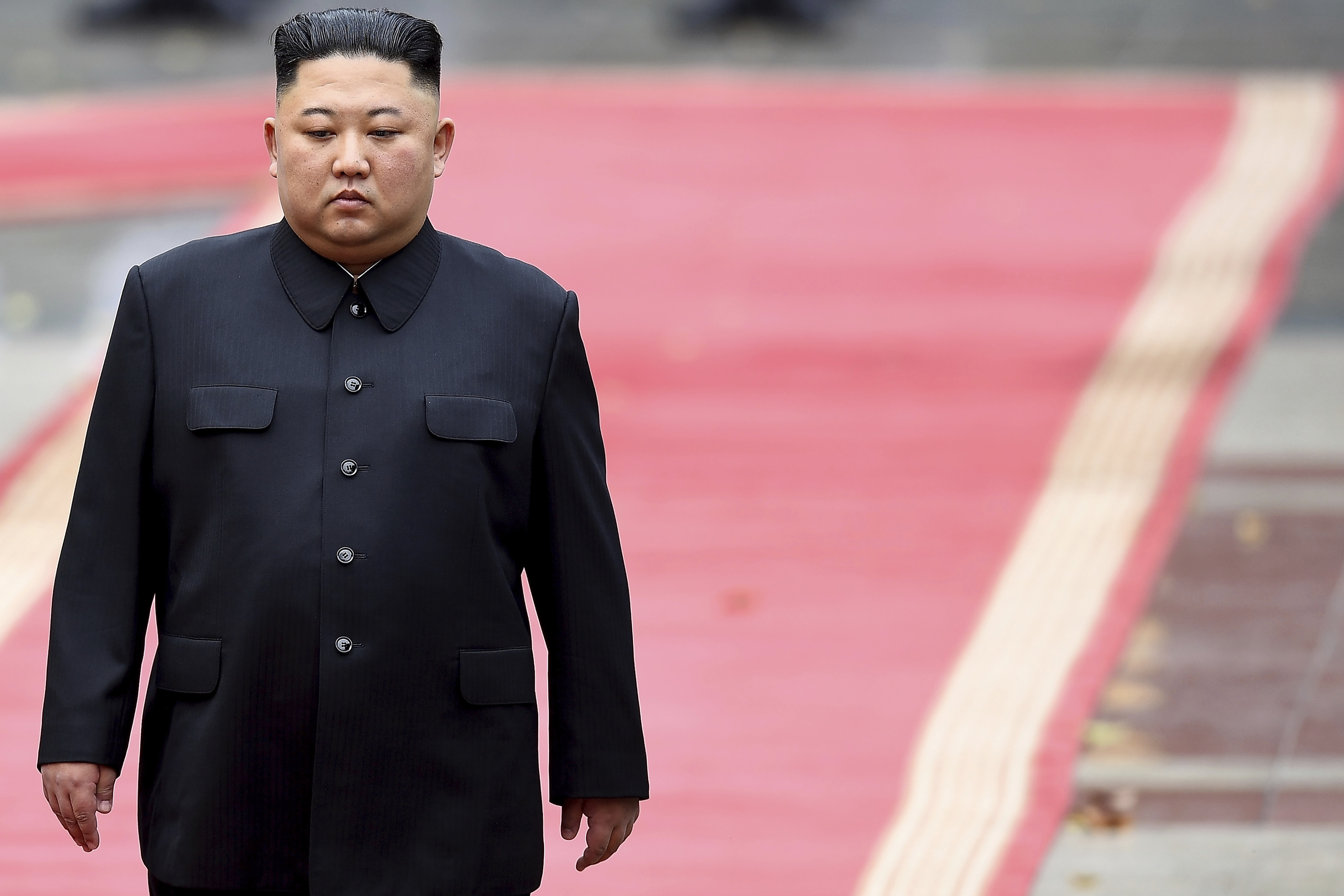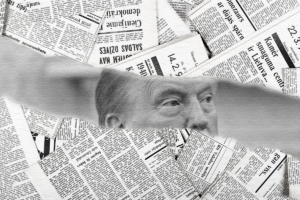Trump Is Forcing Iran to Follow North Korea’s Dangerous Example
The lesson to be learned from the difference between how the U.S. president treats Iran and North Korea is painfully clear. North Korea's leader Kim Jong Un. (Manan Vatsyayana/ AP)
North Korea's leader Kim Jong Un. (Manan Vatsyayana/ AP)
“Axis of Evil” first appeared in former President George W. Bush’s State of the Union address in January 2002, describing Iraq, Iran and North Korea months after the Sept. 11 attacks. Fourteen months after the speech, the United States invaded Iraq. The U.S. remains at war there 16 years later.
Now, President Donald Trump is threatening Iran with “obliteration” while he visits and showers praise on North Korea’s leader, Kim Jong Un. Why the different treatment of these two remaining countries in the “Axis of Evil”? It’s simple: North Korea has an estimated 20 to 60 nuclear warheads and the missiles to deliver them, and Iran lacks nuclear weapons. The lesson is painfully clear: To avoid a devastating war with the United States, develop nuclear weapons as a deterrent.
Despite what many Trump critics are saying, including many of the Democratic presidential contenders, Trump’s brief meeting last week with the North Korean dictator was a good thing. Diplomacy is better than war. A war with North Korea would be catastrophic. Joe Cirincione, president of the Ploughshares Fund, which works globally to reduce the dangers posed by nuclear weapons, told CNN in 2017: “You strike North Korea, they are going to strike back, and they have a devastating conventional arsenal built up on the border that could lay waste to Seoul. … Estimates are that hundreds of thousands of South Koreans would die in the first few hours of combat — from artillery, from rockets, from short-range missiles — and if this war would escalate to the nuclear level, then you are looking at tens of millions of casualties.”
Those are just the predicted deaths in South Korea. Add potential nuclear strikes on Japan, Hawaii and possibly the U.S. mainland, and the casualty figures become unimaginable.
We should be grateful that Trump is pursuing negotiations with North Korea. We should congratulate him on becoming the first sitting U.S. president to set foot in North Korea last week.
One opponent of such dialogue is Trump’s national security adviser, John Bolton. While Trump was in the Koreas last week, Bolton was dispatched far away, to Mongolia. After The New York Times reported that Trump was considering accepting a North Korean nuclear freeze, as opposed to complete denuclearization, Bolton tweeted, “Neither the NSC staff nor I have discussed or heard of any desire to ‘settle for a nuclear freeze by NK.'”
Bolton and Secretary of State Mike Pompeo are also widely believed to favor a military conflict with Iran. Iran shot down an unmanned U.S. spy drone recently, alleging it had entered Iranian airspace. Trump ordered a military strike in retaliation, then called it off at the last minute.
Trump should be condemned for launching the attack, but applauded for aborting it. War with Iran would be incredibly destructive on all sides, and would likely spread throughout the Middle East. If it were to happen, the Bulletin of the Atomic Scientists warns, Trump could very likely order the use of so-called tactical nuclear weapons against Iran.
In the midst of this geopolitical tinderbox, the Trump administration is attempting to deliver nuclear technology to Saudi Arabia, a key antagonist of Iran. Saudi Crown Prince Mohammed bin Salman has not ruled out using the nuclear power plants he hopes to buy to develop nuclear weapons.
Bipartisan congressional opposition to the Saudi nuclear deal is growing, not only due to the danger of nuclear weapons proliferation, but also because of Saudi Arabia’s relentless bombing of Yemen, causing the greatest humanitarian crisis in the world today, and its brutal murder of Washington Post journalist Jamal Khashoggi. California Democratic Congressmember Brad Sherman told Arms Control Today, “If there’s a government that you can’t trust with a bone saw, you shouldn’t trust it with nuclear weapons.”
Another concern in Congress is the potential conflict of interest of Trump adviser and son-in-law Jared Kushner. Kushner’s family business received a massive bailout last year from a hedge fund called Brookfield Asset Management. BAM also owns Westinghouse Electric, which would profit from nuclear plant sales to Saudi Arabia. Kushner’s strong personal relationship with the Saudi crown prince is well-known.
With the United States openly gearing up for war with Iran, while actively seeking to empower Saudi Arabia with the technology it needs to develop its own nuclear weapons, is it any wonder that Iran has just announced it will begin amassing and enriching uranium again? Iran had been adhering to the terms of its multilateral nuclear deal, even after Trump pulled the United States out of the agreement.
President Trump is forcing Iran to follow the route taken by North Korea: Build a deterrent nuclear arsenal or be destroyed. We need a grassroots, global response to stop this new nuclear arms race before it goes any further.
Your support matters…Independent journalism is under threat and overshadowed by heavily funded mainstream media.
You can help level the playing field. Become a member.
Your tax-deductible contribution keeps us digging beneath the headlines to give you thought-provoking, investigative reporting and analysis that unearths what's really happening- without compromise.
Give today to support our courageous, independent journalists.








You need to be a supporter to comment.
There are currently no responses to this article.
Be the first to respond.